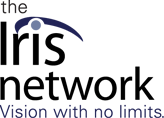In 2020, The Iris Network is supporting this bill actively in Washington, D.C.: The SAVE ORGANIZATIONS THAT SERVE (SOS) AMERICA ACT would increase funding for nonprofits and expand/make permanent the universal charitable deduction. More info: Message your Representative
The Iris Network also supported the Small Business Administration (SBA) bill called the Coronavirus Aid, Relief, and Economic Security Act (CARES) ACT that was signed into law on Friday, March 27, 2020, along with the Maine supplemental budget bill for Maine for 2020 at the Department of Health & Human Services (DHHS), Appropriations, and Governor level.
The Workforce and Innovation and Opportunity Act (WIOA) and its implementing regulations are designed to strengthen and improve the nation’s public workforce development system and help Americans with significant barriers to employment, including individuals with disabilities, into high quality jobs and careers and help employers hire and retain skilled workers. Title IV of WIOA amended title I of the Rehabilitation Act of 1973.
Competitive Integrated Employment is the foundation of the Workforce Innovation and Opportunity Act (WIOA) and regulations. The Iris Network provides ongoing support for WIOA and competitive and integrated employment.
We advocate for the HR 2086 ACCESS TECHNOLOGY AFFORDABILITY ACT, and GAIN ACT HR 3929.
The Access Technology Affordability Act (ATAA) (H.R. 2086/S. 815)
The cost of critically needed access technology is out of reach for most blind Americans. By providing a refundable tax credit for qualifying purchases, Congress will stimulate individual procurement of this technology and promote affordability of these tools. Learn more about the Access Technology Affordability Act (ATAA) (H.R. 2086/S. 815).
The Greater Access and Independence through Nonvisual Access Technology (GAIN) Act (H.R. 3929)
Advanced digital interfaces create barriers that prevent blind individuals from independently operating essential devices that enhance quality of life. Congress must end the digital divide that threatens the independence of blind Americans by developing minimum accessibility requirements for such devices. Learn more about the Greater Access and Independence through Nonvisual Access Technology (GAIN) Act (H.R. 3929).
The Accessible Instructional Materials in Higher Education (AIM HIGH) Act (H.R. 5312/S. 3095)
Until a market-driven solution for accessible instructional materials is achieved, blind college students are denied access to critical course content. The AIM HIGH Act will remove these barriers to equality in the classroom by creating a set of guidelines that clearly define accessible instructional materials. Learn more about the Accessible Instructional Materials in Higher Education (AIM HIGH) Act (H.R. 5312/S. 3095).
